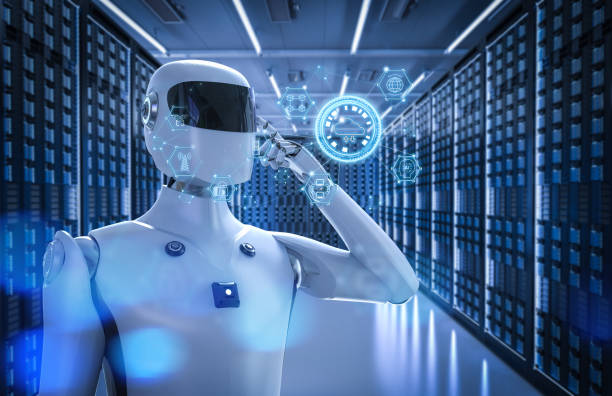Crafting Human-Centric AI Content

AI is heavily relied upon in content creation. What really constitutes a challenge is the humanization of AI content. But human technology can be done and achieved. By this, I mean you can try as much as possible to incorporate empathy and feeling into it. So whatever we produce for marketing purposes must moreover go beyond being informative or promotional marketing but should make an emotional connection to those who will view it.
Personal and Engaging
If we want to humanize AI, we have to consider how end-users will consume our material. It’s important that they receive content that seems personal, relevant and engaging, rather than something mechanical and cold-hearted like most of the things people see today. However, attaining this level of humanisation requires understanding human psychology, preferences’ and behavior patterns so as to teach AI how they work hence improving its results.
Empathy Gives AI the Power to Connect
Empathetic design may seem odd for a computer program. However, it’s critical when trying to create human-centric AI material. If machines can learn about users’ needs while interacting with them, then eventually, everything starts making sense. This could include things as simple as generating recommendations based on mood or creating personalized interactions.
Human-centric Data is Meaningful Data
However many other angles are left when crafting human-centric AI content on these figures which power our industry For instance rather than using stats, one might look at behavioral patterns or link stories with analytics somehow. Simply put, your numbers are only so valuable if you do not know who represented them in the first place.
A Balance Between Humanity and Innovation is Key to Creativity
Only when automation threatens creativity does one realize its importance more than ever before. The good news, however, is that it isn’t meant to replace our creative process but rather enhance it. While AI handles basic and routine tasks, we can focus on things like strategy or storytelling, which involve human input for the best results.
Ethical Use of AI for Content Creation
Ethics are important no matter what industry you are in; however when creating undetectable AI content there is more need for concern about audience trust and content accuracy. Furthermore, user privacy should be respected by being open with how you use AI. And through all this technology, people must realize that creativity largely depends on humans.
The Future of Human-Centric Content Creation
As time goes so does the technological advancement behind our methods of incorporating human insights into content. However, our ultimate aim is to have everyone understand the extent to which AI can simplify everything while still maintaining some form of humanity in it.
Creating content that’s human-centered isn’t easy. It’s a process that takes time, talent and an understanding of what drives us. It may not be easy to create such kind of materials but it’s possible. We want to merge the benefits of artificial intelligence with those derived from human creativity in a way that feels natural and seamless. Consequently, our works will become more meaningful and relatable since they would appeal to our targeted audience at large
Human-centric AI content creation has a few things to think about. First and foremost, authenticity is critical. Lack of genuineness or being too mechanical or forced in nature will make it bad content regardless of how well you analyze it. Secondly, our content should be engaging and useful for the end-user. In other words, we need to know who they are when they find us.
Our content shouldn’t just look good on paper (or screen) but also have tactile component to it. Humans consume media using several senses such as watching videos or listening to audio which speaks directly to their emotions at an unconscious level.
‘Human-centric’; you may have heard the term before but what does it exactly mean? It means thinking about how people relate to their environment rather than forcing them into technological molds.
Now, obviously high rank for every single search query ever made is what all pages of our website are supposed to attract, however sometimes something can rank so high that no one will click on it as well as nobody likes going through many words you wrote for word count – in fact this could instead cause a scenario where someone leaves your page immediately without coming back again just because they were bored out of their wits by unnecessarily long passages of information.
However valuable data is yes; there are humans who are complex beings with complicated feelings that don’t go by numbers alone. Therefore, when devising contents on AI which focus human beings then one must bear in mind that these contents shall be consumed by humans.
Some say that artificial intelligence’s rise will result in decreased human creativity – not us though. This allows machines do the heavy lifting with analytics while we concentrate more on what makes good content: story telling, strategy and other creative aspects that cannot be done better by any machine. Rather than competing against humans for their jobs therefore we want our jobs enhanced through AI assistance.
Ethics and Transparency
Of course, there are ethical concerns surrounding the use of AI in content creation. First things first, transparency. Tell these people what you use AI for so that they don’t think this is a living person behind the screen. Besides, proper care should be taken as regards user privacy and accuracy regardless of who or what generated your content. By doing so, you are impressing upon your audience that while you can employ artificial intelligence to get the job done, empathy, ethics and creativity will always come first.
The Future of Human-Centric AI Content
Looking ahead – not too far ahead hopefully – what AI could bring to content production is real emotions. It may sound like science fiction but someday we shall create compelling narratives that resonate with readers at a personal level without even typing a single word ourselves.
Making AI content that is difficult to detect is a well-known secret. You require technology and as well as something genuine and relatable in the system. That’s why, from now on, we want to try blending human insight with strong algorithms. If AI works so smoothly people do not even realize there was a use of an algorithm at all-then good marketing returns us back to square one of engagement: talking to your audience genuinely and emotionally about your products and services.




